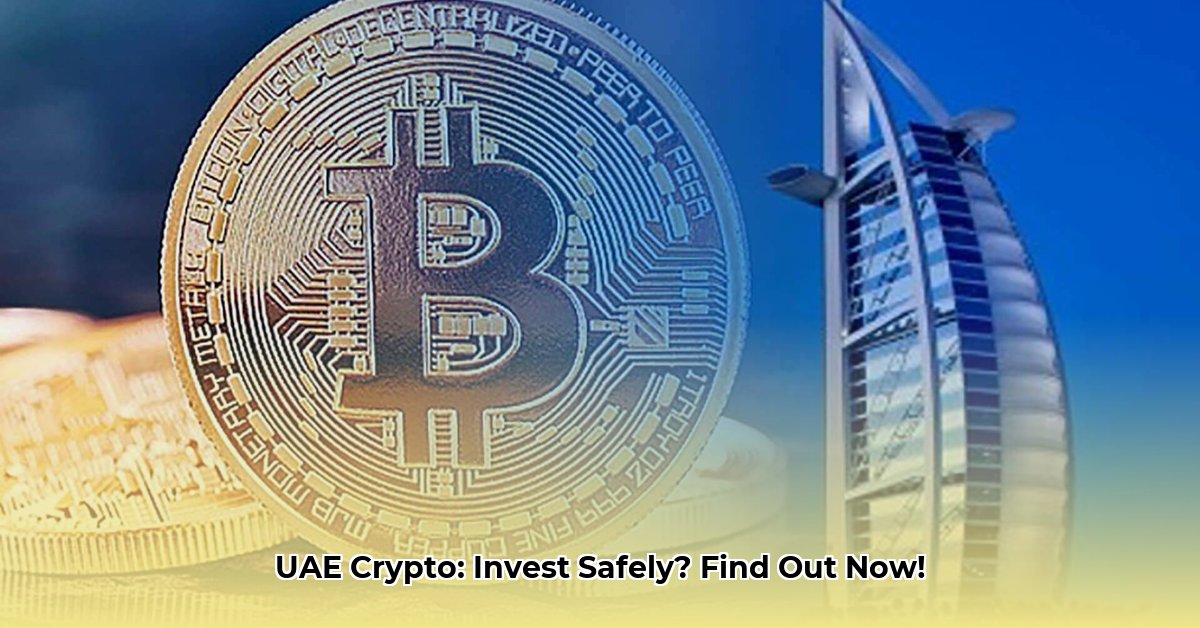
The United Arab Emirates (UAE) is rapidly emerging as a global cryptocurrency hub, attracting significant investment and innovation. However, this growth is intertwined with a complex and evolving regulatory landscape. This article provides a comprehensive guide to navigating the UAE's cryptocurrency regulations, offering actionable insights for investors, businesses, and policymakers alike. Understanding this framework is crucial for success in this dynamic market. Are you prepared for the intricacies of UAE crypto regulation?
Navigating the UAE's Crypto Regulatory Maze
The UAE's crypto regulatory environment is characterized by a multi-agency approach. This distributed responsibility, while potentially creating some initial confusion, also allows for specialized oversight and tailored approaches to different aspects of the industry. Four key regulatory bodies play pivotal roles:
- Financial Services Regulatory Authority (FSRA): Regulates financial services within Abu Dhabi and its Global Market (ADGM), a financial free zone.
- Dubai Financial Services Authority (DFSA): Oversees financial services within the Dubai International Financial Centre (DIFC), another prominent financial free zone.
- Virtual Assets Regulatory Authority (VARA): Specifically regulates virtual assets and related activities within Dubai.
- Securities and Commodities Authority (SCCA): Oversees securities and commodities, including certain aspects of cryptocurrencies, at the federal level across the UAE.
This division of responsibilities creates a unique regulatory environment. While some critics point to potential inconsistencies, others argue this specialization allows for a more nuanced and effective regulatory framework.
Understanding the Rules of the Game: Key Regulations
VARA's licensing system for cryptocurrency exchanges and custodians is a cornerstone of the UAE's regulatory approach. This licensing process is designed to foster industry growth while ensuring investor protection and promoting responsible practices. The ADGM has also taken a progressive approach, establishing a legal framework for Decentralized Autonomous Organizations (DAOs), a relatively nascent area in global crypto regulation. These frameworks significantly impact how businesses operate and how investors interact with the market. Understanding these specifics is paramount for navigating the UAE's crypto sector effectively. Did you know compliance failures can lead to substantial penalties?
The UAE's Crypto Strategy: A Global Comparison
The UAE’s approach to crypto regulation differs from other major jurisdictions. While Singapore and the European Union have established comprehensive frameworks, the UAE distinguishes itself with a proactive approach aimed at attracting international businesses and establishing itself as a global crypto hub. This strategy contrasts with more cautious or reactive approaches taken by other nations, such as in certain parts of the United States, where regulatory approaches vary significantly at the state level. The UAE’s utilization of free zones adds further complexity but also offers flexibility and potential advantages to businesses.
Challenges and Future Prospects: The Road Ahead
Despite the UAE's ambitious position, challenges persist. The most significant hurdle is the potential for regulatory fragmentation across different emirates. Harmonizing regulations is crucial to create a consistent and predictable environment that fosters sustainable growth and attracts further investment. The long-term health of the UAE's crypto ecosystem hinges on addressing this fragmentation and creating a unified, transparent regulatory landscape. Experts predict increased clarity and potentially unified rules in the coming years.
Actionable Insights for Stakeholders
The following provides actionable steps for various stakeholders operating within the UAE's crypto landscape:
1. For Crypto Businesses:
- Short-term: Secure the necessary licenses from the relevant regulatory authority (VARA, DFSA, or FSRA depending on location and activities) and prioritize robust cybersecurity measures. Implement rigorous AML/KYC procedures.
- Long-term: Consider expanding operations strategically within the UAE's free zones and mainland. Stay abreast of regulatory changes through continuous monitoring and engagement with relevant authorities.
2. For Institutional Investors:
- Short-term: Conduct thorough due diligence on all crypto-related investments, considering both potential returns and regulatory risks. Diversify your portfolio to mitigate market volatility.
- Long-term: Monitor emerging opportunities within the UAE's crypto ecosystem. Stay informed about regulatory updates to make informed investment decisions.
3. For the UAE Government:
- Short-term: Prioritize the harmonization of crypto regulations across different emirates. Strengthen investor protection mechanisms and transparent communication channels.
- Long-term: Engage in international collaborations to establish best practices for crypto regulation. Consider implementing "regulatory sandboxes" to foster innovation while managing risks.
4. For International Businesses:
- Short-term: Thoroughly assess the UAE's regulatory landscape before entering the market. Engage legal counsel to ensure full regulatory compliance and navigate potential complexities.
- Long-term: Consider establishing a presence within the UAE, capitalizing on its talent pool and supportive (albeit complex) regulatory environment.
Conclusion: The UAE's Crypto Future
The UAE's ambitious pursuit of becoming a leading global cryptocurrency hub is a dynamic and evolving process. While challenges remain, particularly concerning regulatory harmonization, its proactive approach and commitment to regulatory development position it strongly for future growth. Navigating this complex regulatory landscape may require significant upfront investment and ongoing vigilance, but the potential rewards for businesses and investors who successfully do so are substantial. The future of cryptocurrency in the UAE is bright, albeit demanding careful consideration of its unique regulatory components.